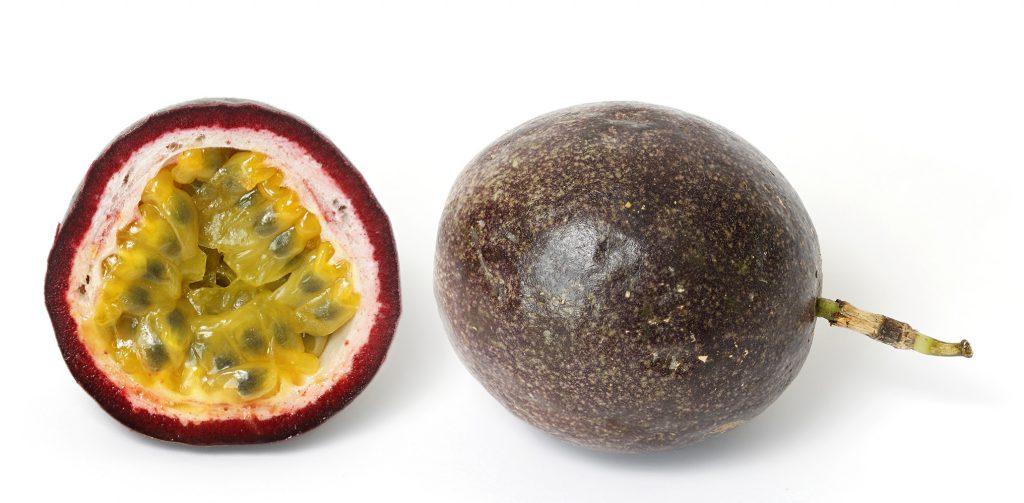 Passiflora edulis is a species of passion flower native to South America. In Europe passiflora incarnata is most commonly used for its anxiolytic effects, however it is apparent that other species also share its ability to treat anxiety. This may indicated that the phytochemistry of the various species of passionflower are similar. Some evidence suggests that components within extracts of the plant are able to bind to serotonin receptors in the brain, and this may explain the pharmacological activity. Researchers have investigated the anxiolytic effects of Passiflora edulis by administering water extracted leaf extracts to mice. The extracts were effective at reducing the anxious behaviour exhibited by the rats as has been shown for other passion flower species. The researchers identified luteolin-7-O[2-rhamnoglucoside] as an active constituent that induce anxiolytic effects on the mice. This supports other studies that shows that luteolin and its glycosides may have anxiolytic activity in animals.
Passiflora edulis is a species of passion flower native to South America. In Europe passiflora incarnata is most commonly used for its anxiolytic effects, however it is apparent that other species also share its ability to treat anxiety. This may indicated that the phytochemistry of the various species of passionflower are similar. Some evidence suggests that components within extracts of the plant are able to bind to serotonin receptors in the brain, and this may explain the pharmacological activity. Researchers have investigated the anxiolytic effects of Passiflora edulis by administering water extracted leaf extracts to mice. The extracts were effective at reducing the anxious behaviour exhibited by the rats as has been shown for other passion flower species. The researchers identified luteolin-7-O[2-rhamnoglucoside] as an active constituent that induce anxiolytic effects on the mice. This supports other studies that shows that luteolin and its glycosides may have anxiolytic activity in animals.

Passiflora edulis is most commonly known for its edible fruit, which is called passion fruit. This is commercially grown in South America. Leaf extracts of Passiflora edulis have been shown to possess anxiolytic effects in animals, but the fruit may also have medicinal effects that include the ability to treat anxiety. Image is of Passiflora edulis fruit (passion fruit). Image from By Taken byfir0002 | flagstaffotos.com.auCanon 20D + Sigma 150mm f/2.8 – Own work, GFDL 1.2, https:// commons.wikimedia.org/ w/ index.php?curid=5765388.
In another study researchers investigated the anxiolytic effects of Passiflora edulis leaf extracts on rats. The results of the study showed that Passiflora edulis extracts conferred significant anxiolytic effects on the rats when they were exposed to experimental stress. These effects were of a similar nature to those induced by the benzodiazepine drug, diazepam. In this study the researchers compared the effects of Passiflora edulis with another species of passionflower, Passiflora alata. The effects between these two species were comparable suggesting that they may have similar phytochemical constituents, and may both contain the same active principles. One thing that was observed in this study was that while diazepam disrupted the memory function of the rats, the passion flower extracts did not have this negative effects. This suggests that for treating mild forms of anxiety, passionflower may hold a significant advantage over pharmaceutical intervention with diazepam and other benzodiazepines.
Eat Well, Stay Healthy, Protect Yourself
RdB
